Search Definitions
Browse Content (p. 259)

Definition
Byzantium
The ancient city of Byzantium was founded by Greek colonists from Megara around 657 BCE. According to the historian Tacitus, it was built on the European side of the Strait of Bosporus on the order of the “god of Delphi” who said to build...
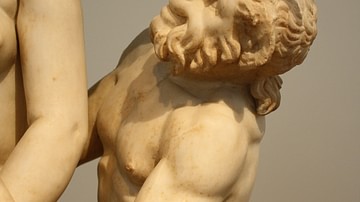
Definition
Pan - The Pastoral God of Ancient Greece
Pan is a figure from Greek mythology who was originally a pastoral god from Arcadia. It was believed Pan dwelt in the mountains and forests of Greece. He was the patron of shepherds, hence one of his attributes is the lagobolon - a hare trap...
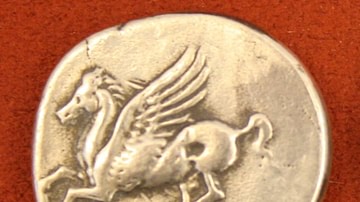
Definition
Pegasus - The Winged Horse of Greek Mythology
Pegasus (or Pegasos) is a winged-horse from Greek mythology which was fathered by Poseidon and was born from the severed neck of the gorgon Medusa, slain by Perseus. At the same time and in the same way, Chryasor was also born. Poseidon gave...
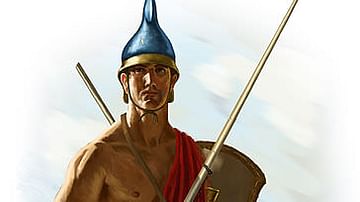
Definition
Peltast
A peltast was a type of Greek infantryman who was usually armed with a javelin and who carried a light shield. Originating from Thrace, the peltast was a common sight in Greek warfare during the Classical period and especially following the...
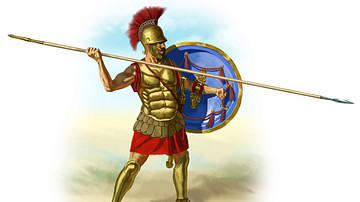
Definition
Hoplite - The Key Infantry Soldier of Ancient Greece
A hoplite (from ta hopla meaning tool or equipment) was the most common type of heavily armed foot-soldier in ancient Greece from the 7th to 4th centuries BCE, and most ordinary citizens of Greek city-states with sufficient means were expected...
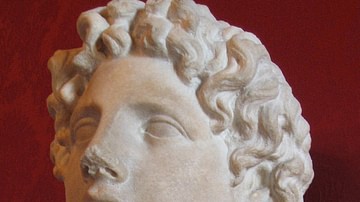
Definition
Alcibiades
Alcibiades (or Alkibiades) was a gifted and flamboyant Athenian statesman and general whose shifting of sides during the Peloponnesian War in the 5th century BCE earned him a reputation for cunning and treachery. Good-looking and rich, he...
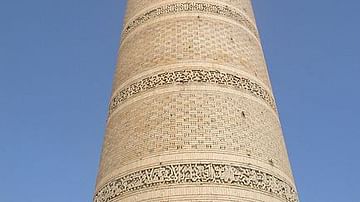
Definition
Minaret
A minaret is a feature of Islamic architecture and is the place from where the call to prayer is sent out. They are also known as a manār or manāra in Arabic, meaning place of fire or light (nar or nur). According to scholars, the expression...
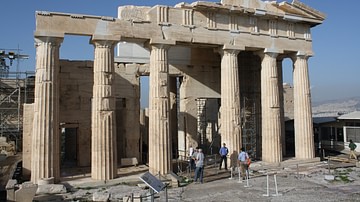
Definition
Propylaea
Propylaea is the name given to monumental gates or entranceways to a specific space, usually to a temple or religious complex and as such they acted as a symbolic partition between the secular and religious parts of a city. Less complex examples...
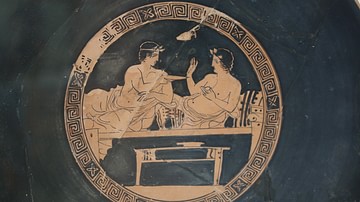
Definition
Symposium - The Drinking Party of Ancient Greece
The symposium (or symposion) was an important part of ancient Greek culture from the 7th century BCE and was a party held in a private home where Greek males gathered to drink, eat and sing together. Various topics were also discussed such...
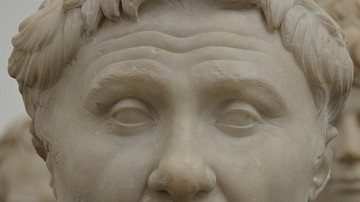
Definition
Pompey
Gnaeus Pompeius Magnus, also known as Pompey or Pompey the Great, was a military leader and politician during the fall of the Roman Republic. He was born in 106 BCE and died on 28th September 48 BCE. His father was Gnaeus Pompeius Strabo...